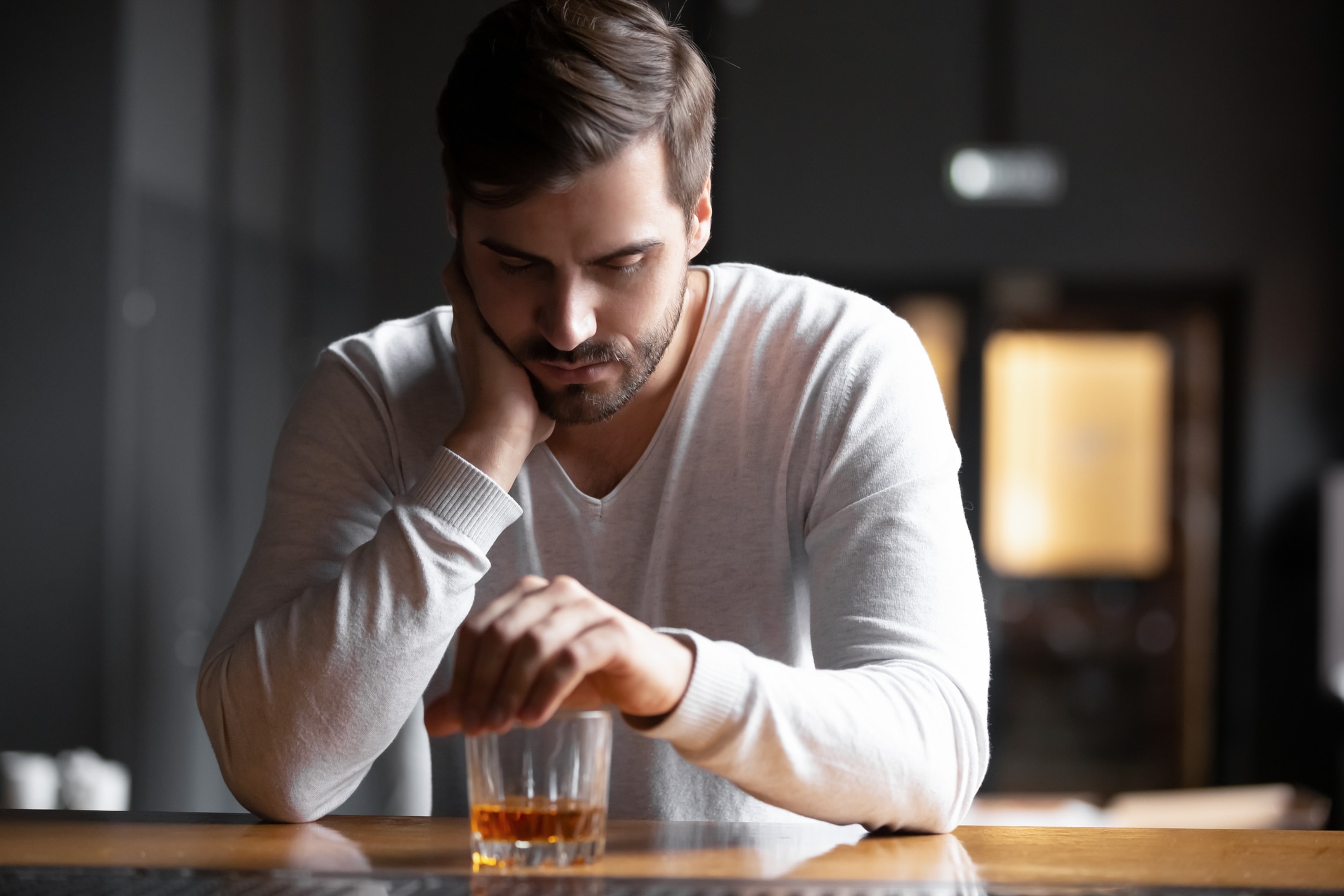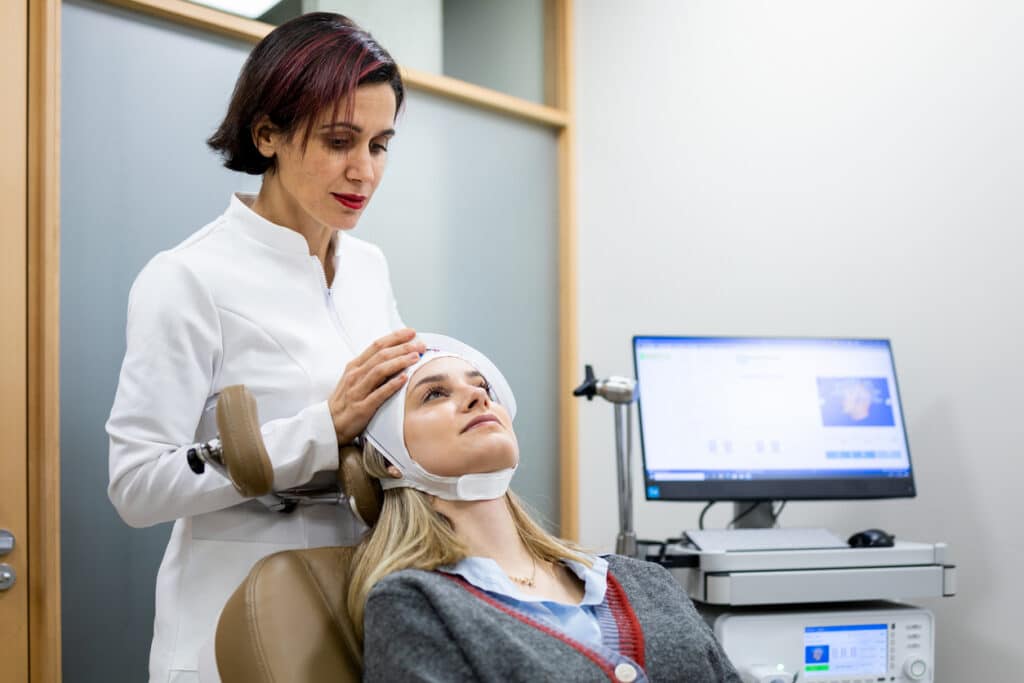By Beau Black
Depression and alcohol use disorder are often connected conditions. Each can make the other worse, and one can trigger the other. Many who struggle with depression turn to alcohol to medicate their symptoms. But while alcohol may dull your senses in the short term, it ultimately worsens these symptoms over time. Likewise, many who struggle with alcohol abuse end up facing depression as well. These co-occurring conditions can create a cycle that leaves you feeling hopeless — but with treatment, you can heal and live a fulfilling life in recovery.
The Effects of Alcohol Use on Depression
It is not uncommon for people dealing with depression to self-medicate with alcohol. At first, alcohol may seem to help your mental state. It can numb negative feelings, lower inhibitions, and temporarily alleviate distress. But after that initial burst of relief, you will experience the downside. Because alcohol itself is a depressant, slowing the body’s responses and suppressing its functions, it can exacerbate mood disorders. Roughly one-third of people with an alcohol use disorder also suffer from a major depressive disorder.
Because alcohol itself is a depressant, slowing the body’s responses and suppressing its functions, it can exacerbate mood disorders.
When you sober up, your problems remain. You may even feel worse about them. This may cause you to want to drink more to experience that initial relief again. But over time, drinking occasionally becomes drinking every day, then multiple times a day (or bingeing), which can have more significant consequences. Excessive alcohol use can harm your decision-making skills, hurt relationships, cause financial and legal problems, and even lead to job loss. As negative feelings continue to pile up, your ability to bounce back and regain confidence is limited, and your system is physiologically depressed — which can compound your mental and emotional state of depression.
The Physiological Impact of Alcohol on Your Body
A report in Professional Psychology discusses several connections between depression and excessive alcohol use. They confirm that “heavy alcohol use may produce or exacerbate depressive symptoms,” and found that heavy drinkers have “two to three times the risk for mood disorders” of non-drinkers.
The writers also observe that even moderate levels of drinking alcohol can be problematic. “Even moderate doses of alcohol can reduce the availability of tryptophan, which is a precursor to serotonin,” the researchers found. Low serotonin levels are one of the potential causes of depression.
“Even among patients whose alcohol use does not rise to the level of an alcohol use disorder, drinking can have a deleterious effect on depression and depressive symptoms and may dampen the impact of treatment for depression,” the report in Professional Psychology notes. Alcohol, even as little as an ounce per day, can blunt the effectiveness of antidepressants like fluoxetine in treating the disorder. Heavy alcohol use can make it less likely a person will seek out treatment for depression.
Alcohol use disorder and major depressive disorder are certainly connected and can perpetuate each other — but you can overcome them both with treatment and support.
Signs of Alcohol Use Disorder and Major Depression
- Suicidal thoughts
- Inability to enjoy activities you once loved
- A pervasive sense of hopelessness
- Inability to perform daily tasks because you have too little energy or drink too much
- Continually drinking or craving alcohol
- Continuing to drink despite losing a job, ending relationships, losing money, or other negative consequences
Understanding the effects of alcohol on the brain helps us to find healthy ways to refocus our behaviors and rewire our brains in pursuit of mental and physical well-being.

What Should I Do When I’m Down and Feel the Urge to Drink?
When you feel depressed and want to drink, there are many options that provide a way out. Connecting with friends or family in your support network who understand your struggle and will encourage and hold you accountable is a great option. Attending an AA (Alcoholics Anonymous) meeting or talking to your sponsor is another.
Another response is to find activities that also release serotonin and dopamine, chemicals that regulate moods and provide pleasurable, rewarding sensations in our brains. Some of these include:
- Physical activity/exercise
- Getting outside and spending time in the sun
- Petting a dog or cat, or taking a dog for a walk
- Practicing gratitude
- Meditating
- Listening to music
- Getting a massage
Not all of these will appeal to all people — but finding the right combination of activities like these can provide relief. In fact, you may need assistive medications to help restore normal levels of dopamine and serotonin in your system so you can start feeling better faster.
A primary care professional, mental health provider, or treatment professional can advise you on this matter. Speaking to a counselor can also be very helpful in overcoming painful feelings that were contributing to your alcohol use or depression in the first place. What’s most important is that you don’t need to embark on this journey alone.
Treatment for Co-Occurring Disorders
Alcohol use disorder and major depressive disorder are certainly connected and can perpetuate each other — but you can overcome them both with treatment and support. Our trusted treatment professionals at The Meadows recognize how these disorders interact and can treat them together.
Contact us today to learn more about our program and how you can find healing and freedom from these conditions.



